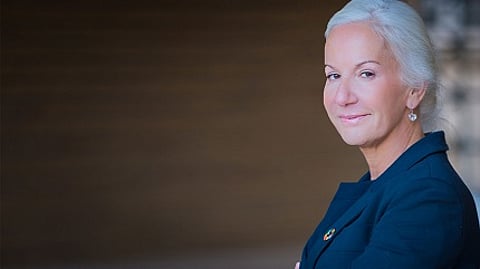

Titled “A new beginning - the era of action” Iris Van der Veken, Executive Director of the Responsible Jewellery Council has written an open letter to business leaders in the jewellery industry. Sub titled “Sustainability Trends of 2022: An Open Letter to the industry,” she spoke of 2021 as a year of transition and 2022 like a year of new beginnings. She shared 6 key themes pivotal in our sustainability journey.
Based on the McKinsey and Company, she spoke of how to conceptualize and deliver a future where these three goals – growth, sustainability, and inclusion – do not act as counteracting forces but as self-reinforcing and accumulative engines for change.
By 2030, Millennials will make up 75% of the workforce, according to the U.S. Bureau of Labor Statistics. For an idea of what Jewellery companies will need to do to attract and retain talent in the future, take a look at ServiceNow, a $3.5 billion enterprise software and services company based in Santa Clara, California. Unlike many of its Silicon Valley rivals, ServiceNow does not rely on workplace trappings such as fancy offices and a gourmet cafeteria offering free lunches and bottomless lattes. Instead, the company focuses on the factors that are most critical to retaining and inspiring employees: a culture of inclusion, a workplace that makes getting things done fast and easy, and top-notch rewards for people who “stay hungry and humble.” Today, at long last, mental health discussions are part of the new normal. Celebrities—from Stromae to Lady Gaga openly discuss their struggles with anxiety and depression and urge others to reach out for help. As organizations we will have to shape strong policies to create safe spaces for our people to thrive.
She discusses N Women’s latest report, together with UN DESA, Progress on the Sustainable Development Goals: The Gender Snapshot 2021 that shows women and girls remain disproportionately affected by the socioeconomic fallout from the COVID-19 pandemic, struggling with disproportionately high job and livelihood losses, education disruptions and increased burdens of unpaid care work and a daunting increase of domestic violence.
In the jewellery industry, technology disruption in areas such as blockchain and AI has now become crucial to fostering ethical sourcing practices, sustainable supply chains and transparency. Examples of this abound: the Aura Blockchain Consortium, a collaboration between LVMH, Richemont and the Prada Group, the technology company Everledger, and Tracr being just a few notable ones.
"You can't manage what you can't measure", this famous saying by Peter Drucker is more relevant in today’s data-powered world where business decisions increasingly rely on Big Data and its myriad applications. At the RJC, a new framework has been developed to support the implementation of the 2030 Agenda, and to assess progress towards achieving long-term impact. The metrics will provide a holistic view of the members’ commitment to, and management of key ESG risks, and the resulting compliance and performance improvements. These new metrics will enable to assess progress, promote behaviour change, report performance more comprehensively, and demonstrate meaningful and measurable progress to stakeholders.
The feasibility of the metrics was tested through a pilot project involving 30 RJC members from across the value chain. The members who participated in this research include companies such as Alrosa, Boucheron, Cartier, Chopard, De Beers, Hermes, IWC, Louis Vuitton, and Rio Grande, just to name a few. The insights derived from the metric data will help inform strategy, drive innovation and deliver continuous improvement.
With a strategic focus for 2022 on member training and education, RJC will help members understand SDG targets, increase the recognition of the RJC certification as a credible ESG risk management mechanism, and this will only be achieved through effective SDG implementation.
Follow DiamondWorld on Instagram: @diamondworldnet
Follow DiamondWorld on Twitter: @diamondworldnet
Follow DiamondWorld on Facebook: @diamondworldnet
